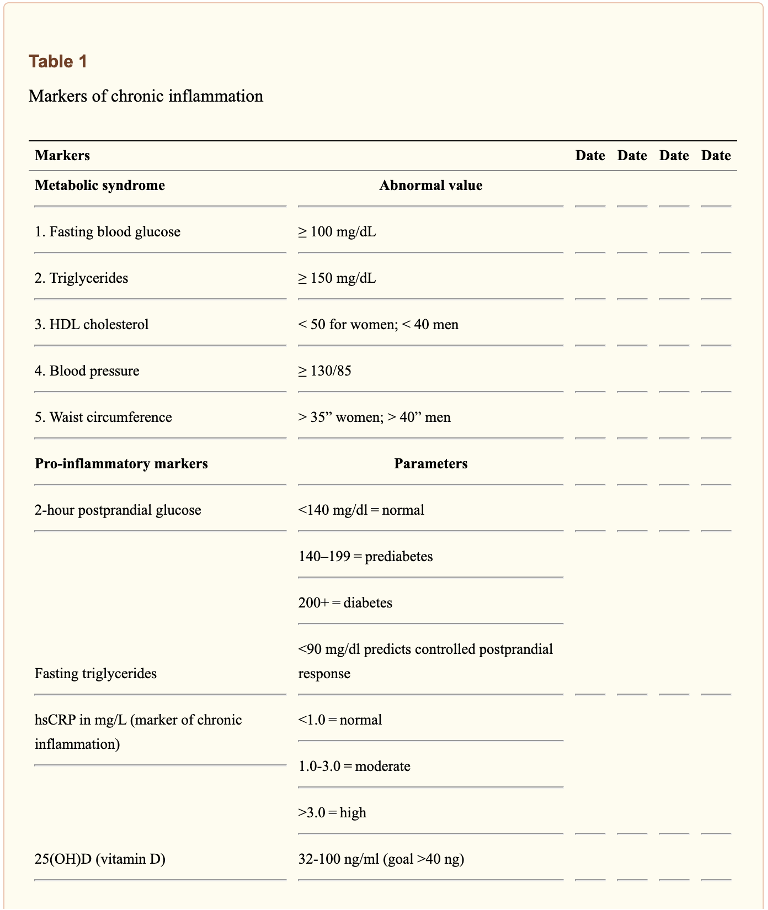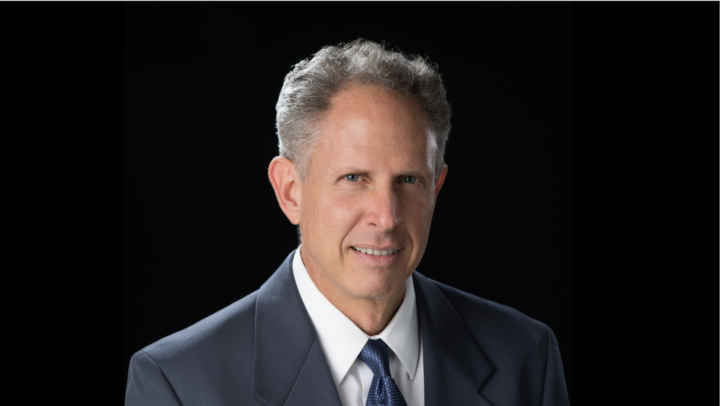How Parental Age and Diet Affect Autism in Children

Autism is often misunderstood. To help put the developmental disability in perspective, you might consider watching Temple Grandin, an excellent movie based on an amazing true story.
Dr. Grandin was born in 1947; her mother noticed her autistic behavior when she was two years old. The movie outlines how Temple’s mother ceaselessly worked to give her important sensory stimuli and education, which allowed her to gradually improve her social skills and communication skills. Temple eventually went on to get a Ph.D. and is now one of the top college professors in the country.
It is important to recognize that Temple’s case of autism developed before vaccines were broadly introduced to the population. This is important because vaccines have recently become the focus of much chatter about autism, rather than the pro-inflammatory biologic state that causes autism to emerge in the presence or absence of vaccines.
While many factors can contribute to autism, the health status of a child’s parents is the key factor that increases or decreases autism risk in their offspring. Not surprisingly, diet plays a determining role, which will be the focus of this article.
Paternal age and autism
I was born in 1960—a time when most parents started having children in their early twenties. Today, it is not uncommon for people to wait until they are in their thirties before starting a family. It is also not uncommon for men in their forties or fifties to start a family with women in their twenties or thirties.
Researchers have discovered that the offspring of men 40 years or older were 5.75 times more likely to have autism than the offspring of men younger than 30 years, after controlling for year of birth, socioeconomic status, and maternal age. [1] Age is not such an issue for women, as most have children in their twenties and thirties.
Rather than use the term “aging,” I like to use the scientific term “inflammaging,” which refers to the low-grade inflammation that occurs with age. [2-5]
When we age poorly, we either pro-inflammage and suffer from chronic pain and disease, or we can take steps to anti-inflammage and age gracefully. Not surprisingly, most people in America pro-inflammage, which is driven by a pro-inflammatory diet, sedentary living, chronic psychosocial stress, and poor sleep. These poor lifestyle habits lead to chronic inflammation, which drives all diseases, including autism.
Unsurprisingly, the sperm of inflammaging men is also pro-inflammatory. It can have increased DNA mutations and an abnormal number of chromosomes. [6] As a result, the offspring of older fathers are at greater risk for developing schizophrenia, bipolar disorders, and childhood leukemia, as well as autism. [6]
With the above information in mind, if men wish to have children after 40 years of age, they should endeavor to be healthy and fit, and make sure that various inflammation markers are within the normal range.
I have listed the various direct and surrogate markers of inflammation in my various DeFlame Diet books, as well as in Table 1 of my journal article, Body mass index and musculoskeletal pain: is there a connection?

Paternal obesity and autism
A father’s age is not the only risk factor for his offspring to develop autism. Paternal obesity is also a risk factor.
I recently wrote an article outlining how obesity puts one at greater risk for a severe case of COVID-19. [7] Since the time that article was posted, scientists have identified that obese individuals are also COVID “superspreaders.” [8]
In the same risk-promoting fashion, paternal obesity makes it more likely for offspring to develop autism. [9,10] A likely reason for this is that the sperm of obese men are compromised; they are less motile, have mitochondrial dysfunction, and pro-inflammatory epigenetic changes, which become part of the pro-inflammatory state of a fetus and newborn. [11,12]
To reduce the chances of having a child with autism, men need to stay fit and healthy throughout their lives. This will allow them to anti-inflammage and avoid obesity. Diet is obviously an important part of this.
Maternal health and autism
Of course, maternal health plays a large role in the health of a developing fetus as well. Studies have identified that certain gene mutations place a newborn at a greater risk for developing autism. [13-16]
A key factor that helps to push such gene mutations into expression is the inflammatory state of the mother during pregnancy. Consider the titles of the following two articles written by Doctors Estes and McAllister: Maternal immune activation: implications for neuropsychiatric disorders Maternal Th17 cells take a toll on baby’s brain and Maternal immune activation: implications for neuropsychiatric disorders.
Both of these articles discuss immune activation and the related release of pro-inflammatory cytokines due to maternal infection or autoimmunity. However, multiple factors appear to create a pro-inflammatory state that renders a child more likely to develop autism.
Estes and McAllister suggest that maternal vitamin D supplementation and improving the health of the gut microflora may be useful in dampening the pro-inflammatory state of the mother.
In the context of gut microflora, a 2015 study titled “A model for the induction of autism in the ecosystem of the human body: the anatomy of a modern pandemic” explains that, “the microbial flora is a subset of life associated with the human body, and that the entire human biome, including both microbial flora and fauna, has been radically destabilized by modern culture.”
Why vitamin D matters
We have known for several years that vitamin D deficiency is related to the expression of multiple chronic diseases, such as metabolic syndrome, type 2 diabetes, cardiovascular disease, cancer, autoimmune diseases, musculoskeletal diseases, and mental disorders, such as schizophrenia and depression. [23] So, it should not come as a surprise that maternal vitamin D deficiency is associated with an increased risk of autism in offspring. [24,25]
It is very difficult to achieve adequate vitamin D levels by diet alone, unless that diet is rich in wild-caught fatty fish, wild reindeer meat, and sun-dried Shitake mushrooms. [26]
Since these foods make up a very small percentage of the average person’s diet, it’s important to make sure that you get adequate sunshine every day and/or supplement with vitamin D to easily and rapidly address this autism risk factor. A simple blood test can identify your vitamin D level, which should be used as a guideline for supplementation needs.
The bottom line
If you’re thinking of having children, be sure to pay attention to your health and diet first. The expression of autism is associated with multiple pro-inflammatory “hits” to the fetal brain that are directly related to the diet of the parents. Be sure to avoid excess pro-inflammatory calories from refined sugar, flour, and oils, as they can promote inflammation and, ultimately, autism in offspring.
To reduce your risk of having children with autism, make the dietary changes recommended in this article which can all be achieved through a Paleo Diet, get plenty of vitamin D, and keep inflammation as low as possible.
You can also read my book, The Deflame Diet, to learn more about replacing inflammatory foods with fresh, anti-inflammatory fruits and vegetables.
References
1. Reichenberg A, Gross R, Weiser M, et al. Advancing paternal age and autism. Arch Gen Psychiatry. 2006;63:1026-32.
2. Franceschi C, Bonafe M, Valensin S et al. Inflamm-aging. An evolutionary perspective on immunosenescence. Ann N Y Acad Sci. 2000; 908:244-54
3. De Martinis M, Franceschi C et al. Inflamm-ageing and lifelong antigenic load as major determinants of ageing rate and longevity. FEBS Lett. 2005 ;579(10):2035-9
4. Franceschi C. Inflammaging as a major characteristic of old people: can it be prevented or cured? Nutr Rev. 2007 Dec;65(12 Pt 2):S173-6
5. Franceschi C, Capri M, Monti D, et al. Inflammaging and anti-inflammaging: a systemic perspective on aging and longevity emerged from studies in humans. Mech Ageing Dev. 2007;128:92–105.
6. Sharma R, Agawal A, Rohra V, et al. Effects of increased paternal age on sperm quality, reproductive outcome and associated epigenetic risks to offspring. Reprod Biol Endocrinol. 2015;13:35
7. Seaman DR. Obesity, hyperglycemia, pro-inflammatory immune function, and COVID-19. https://thepaleodiet.com/obesity-hyperglycemia-pro-inflammatory-immune-function-and-covid-19
8. Edwards DA, Ausiello D, Salzman J, et al. Exhaled aerosol increases with COVID-19 infection, age, and obesity. PNAS. 2021;118:e2021830118.
9. Reichenbergb A, Bross R, Weiser M, et al. Advancing paternal age and autism. Arch Gen Psychiatry. 2006;63:1026-32.
10. Suren P, Gunnes N, Rother, C, et al. Parental obesity and risk of autism spectrum disorder. Pediatrics. 2014;133:e1128-38.
11. Craig JR, Jenkins TG, Carrell DT, et al. Obesity, male infertility, and the sperm epigenome. Fertility Sterility. 2017;107:848-59.
12. Raad G, Hazzouri M, Bottini S, et al. Paternal obesity: how bad is it for sperm quality and progeny health? 2017;27:20.
13. Durand CM, Betancur C, Boeckers TM, et al. Mutations in the gene encoding the synaptic scaffolding protein SHANK3 are associated with autism spectrum disorders. Nat Genet. 2007;39:25-27.
14. Voineagu I, Wang X, Johnston P, et al. Transcriptomic analysis of autistic brain reveals convergent molecular pathology. Nature. 2013;474:380-84.
15. Gupta S, Ellis SE, AShar FN, et al. Transcriptome analysis reveals dysregulation of innate immune response genese and neuronal activity-dependent genes in autism. Nat Comm. 2014;5:5748.
16. Brandler WM, Antaki D, Gujral M, et al. Paternally inherited cis-regulatory structural variants are associated with autism. Science. 2018;360:327-31.
17. Brown K, DeCoffe D, Molcan E, Gibson DL. Diet-induced dysbiosis of the intestinal microbiota and the effect on immunity and disease. Nutrients. 2012;4:1095-1119.
18. Spreadbury I. Comparison with ancestral diets suggests dense acellular carbohydrates promote an inflammatory microbiota, and may be the primary dietary cause of leptin resistance and obesity. Diab Met Syn Obesity: Targets Therapy. 2012;5:175-89.
19. Cordain L, Eaton SB, Sebastian A, et al. Origins and evolution of the Western diet: health implications for the 21st century. Am J Clin Nutr. 2005;81(2):341–354.
20. van der Burg JW, Sen S, Chomitz VR, et al. The role of systemic inflammation linking maternal BMI to neurodevelopment in children. Pediatr Res. 2016;79:3-12.
21. Huang Y, Iosif AM, Hansen RL, Schmidt RJ. Maternal polyunsaturated fatty acids and risk for autism spectrum disorder in the MARBLES high-risk study. Autism. 2020.24:1191-1200.
22. Tamiji J, Crawford DA. The neurobiology of lipid metabolism in autism spectrum disorders. Neurosignals. 2010;18:98-112.
23. Holick MF. Deficiency of sunlight and vitamin D. Brit Med. J. 2008;336;1318-19.
24. Vinkhuyzen AA et al. Gestational vitamin D deficiency and autism spectrum disorder. BJPsych OPEN. 2017;3:85-90.
25. Principi N, Esposito S. Vitamin D deficiency during pregnancy and autism spectrum disorders development. Front Psychiatry. 2019;10:987.
26. Cannell JJ, Hollis BW. Use of vitamin D in clinical practice. Alt Med Rev. 2008;13:6-20.
David Seaman, D.C., M.S.
Dr. David Seaman has been writing about chronic inflammation for 25 years. He wrote the first published scientific article about how diet can induce inflammation and promote pain.
More About The Author




